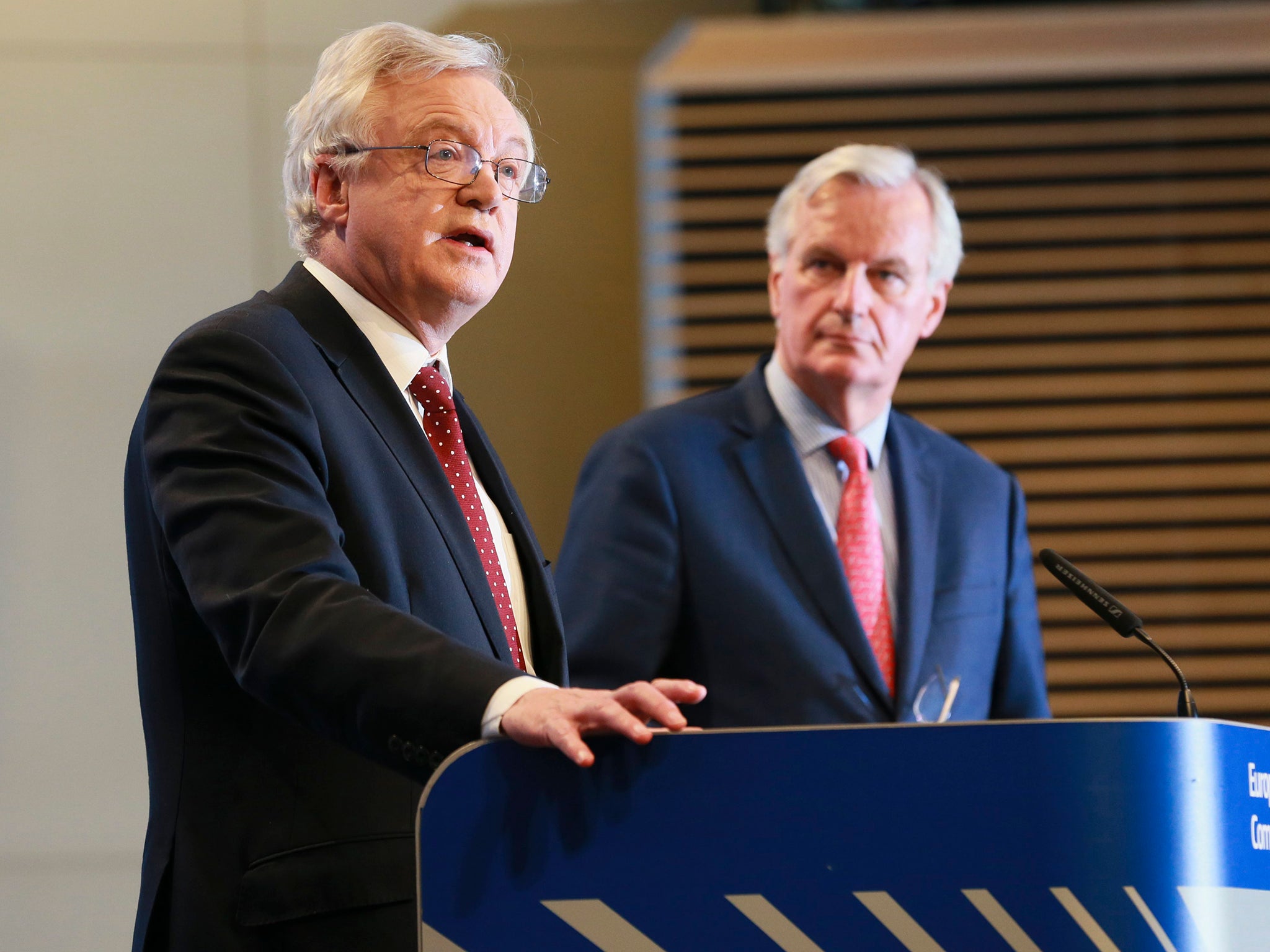David Davis's messy handling of the Brexit negotiations shows that he doesn’t understand the realities of diplomacy
The British seem to think that the pressure of events will make the political leaders of the EU eager to move on trade even if the divorce bill remains unclear. That, though, is a gamble

The UK’s economic future now rests on an answer to a kind of mathematical conundrum: how long does it take to get from €20bn and €60bn to €xbn? Those figures have become the parameters for the UK’s so-called divorce bill in exiting the European Union – the lower one being what the Prime Minister identified in her Florence Speech; and the higher figure being widely thought to be the EU’s calculation of Britain’s outstanding financial obligations. The compromise lies somewhere in between.
EU chief negotiator Michel Barnier thinks he knows the answer to this puzzle. Asked if the two sides had just two weeks to agree on the divorce bill, he answered “yes”. He explained, patiently, that he needs time to consult with 27 national governments and the European Parliament, and that they and the European Council must be satisfied that sufficient progress has been made by the time of the EU Summit in December. So that leaves a narrow timeframe in order to sort out the essentials.
The British don’t like it but, as with so much else, they have to put up with it. If Mr Barnier cannot deliver a positive judgement, because of a deadlock over money, then these preliminary talks will drag on for even longer, leaving no realistic time for any comprehensive trade deal. The British seem to think that the pressure of events will make the political leaders of the EU eager to move on trade even if the divorce bill remains unclear. That, though, is a gamble.
The stakes in this poker game, then, could not be higher, and the timescale could scarcely be shorter. That may be inducing a degree of panic in some quarters in London. Theresa May’s out-of-the-blue tactic of naming a date and even a time for the UK’s departure from the European Union certainly appears desperate; but writing 29 March 2019, 11pm, into legislation as well as her desk diary will make no difference to these talks.
Nor, rather more optimistically, does it mean that Brexit is irreversible; experts and, more appositely, political leaders in Europe have said that it can be cancelled if the political will is there to do so, and Parliament can make and unmake laws as it wishes. The only people impressed by Ms May’s initiative are the hardline anti-Europe critics in her own Government and on the backbenches, some of whom seem willing to welcome a no-deal Brexit, even with the dislocation to industry and the City that would follow.
Two weeks, then, to move the talks on to the next stage, assuming that is, that the other two preliminary problems, of EU citizens rights and the Irish border can also be resolved, which cannot be simply assumed. If not, then the UK faces a further delay in starting trade talks, taking the starting point for these into next spring. By that stage there will not be enough time to frame a new partnership agreement, even if both sides wanted the same things, which is evidently not the case.
What is more, even if the Barnier-Davis talks reach agreement on the three preliminary areas – or at least sufficient progress to move on to future trade – that is no guarantee that those things will remain resolved by the end of the talks process, realistically in a year or so’s time.
It is perfectly possible, for example, that Mr Davis could argue in the autumn of 2018 that, in the light of the trade agreement not being favourable enough to Britain, then the divorce bill should be revisited; he has always maintained that “nothing’s agreed until everything’s agreed”. That phrase would be more reassuring if Mr Davis gave more of an impression of urgency about events, and enjoyed the same clarity about the realities behind diplomacy that his EU counterpart displays.
The only comfort that can be taken from this slow-motion car crash is that if the talks continue to go as badly as they have so far, there will be a growing body of public opinion favouring a cancellation of Brexit, or, at least, a meaningful vote in Parliament or a final referendum. If recent history has taught us anything it is that nothing can be ruled out in politics.
Join our commenting forum
Join thought-provoking conversations, follow other Independent readers and see their replies
Comments
Bookmark popover
Removed from bookmarks